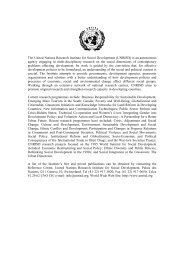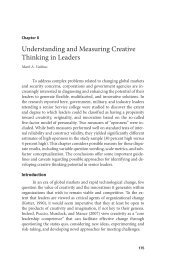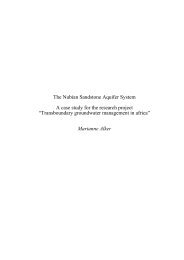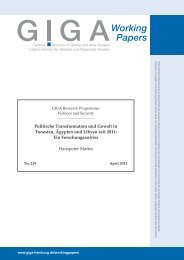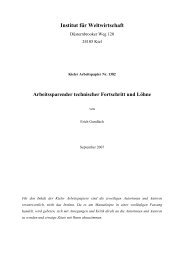Global Jihad: temi, piste di diffusione e il fenomeno del reducismo ...
Global Jihad: temi, piste di diffusione e il fenomeno del reducismo ...
Global Jihad: temi, piste di diffusione e il fenomeno del reducismo ...
You also want an ePaper? Increase the reach of your titles
YUMPU automatically turns print PDFs into web optimized ePapers that Google loves.
6. Muslim Communities in the West: the infrastructure of <strong>Global</strong> <strong>Jihad</strong><br />
Long before the establishment of groups like al-Qa’ida, Islamic and Islamist<br />
movements regularly spoke of conspiracy against Islam and advocated attacks on the<br />
United States, Israel, and Western Culture. Anti-Western and anti-Jewish feelings<br />
have long proliferated in the Muslim world, even among groups and regimes. A<br />
major new element that arose in the past decade, however, was the Islamists’ success<br />
in translating the doctrine of <strong>Global</strong> jihad into efficient terrorist activity, and popular<br />
support for jihad in the form of terrorism. This element was made possible by their<br />
inf<strong>il</strong>tration of Muslim communities in the West, which provided them with essential<br />
ideological and financial support.<br />
Yet, Western-based support for Islamist groups, which is so vital to their success<br />
worldwide, cannot be fully understood without some analysis of the social and<br />
psychological factors underlying the Islamic sociopolitical renaissance in the Muslim<br />
world.<br />
Over the past three decades, Islamic and Islamist movements have been able to plant<br />
their notion of global cultural war in Arab and Muslim societies, convincing many in<br />
the region that Islam is under attack. Thus, concepts synonymous in Western<br />
political culture with terrorism—such as jihad, Takfir (refutation or ex-<br />
communication), Istishhad (Martyrdom, inclu<strong>di</strong>ng by suicide), and Shahid (Martyr)—<br />
are now commonly viewed by many in the Islamic world as religious duties. The<br />
central feeling among most Islamists—from those who carry out terrorist acts to<br />
those who provide a supportive atmosphere for such activity—is that of being under<br />
siege. Thus, all means of self-defense are justified in their eyes, particularly when<br />
these means are granted religious legitimacy.<br />
Islamist movements have also succeeded in convincing many in the Muslim world<br />
that they represent the true contemporary interpretation of Islam. Yet, most of these<br />
movements developed out of a perceived need to return to the earliest fundamentals<br />
66





